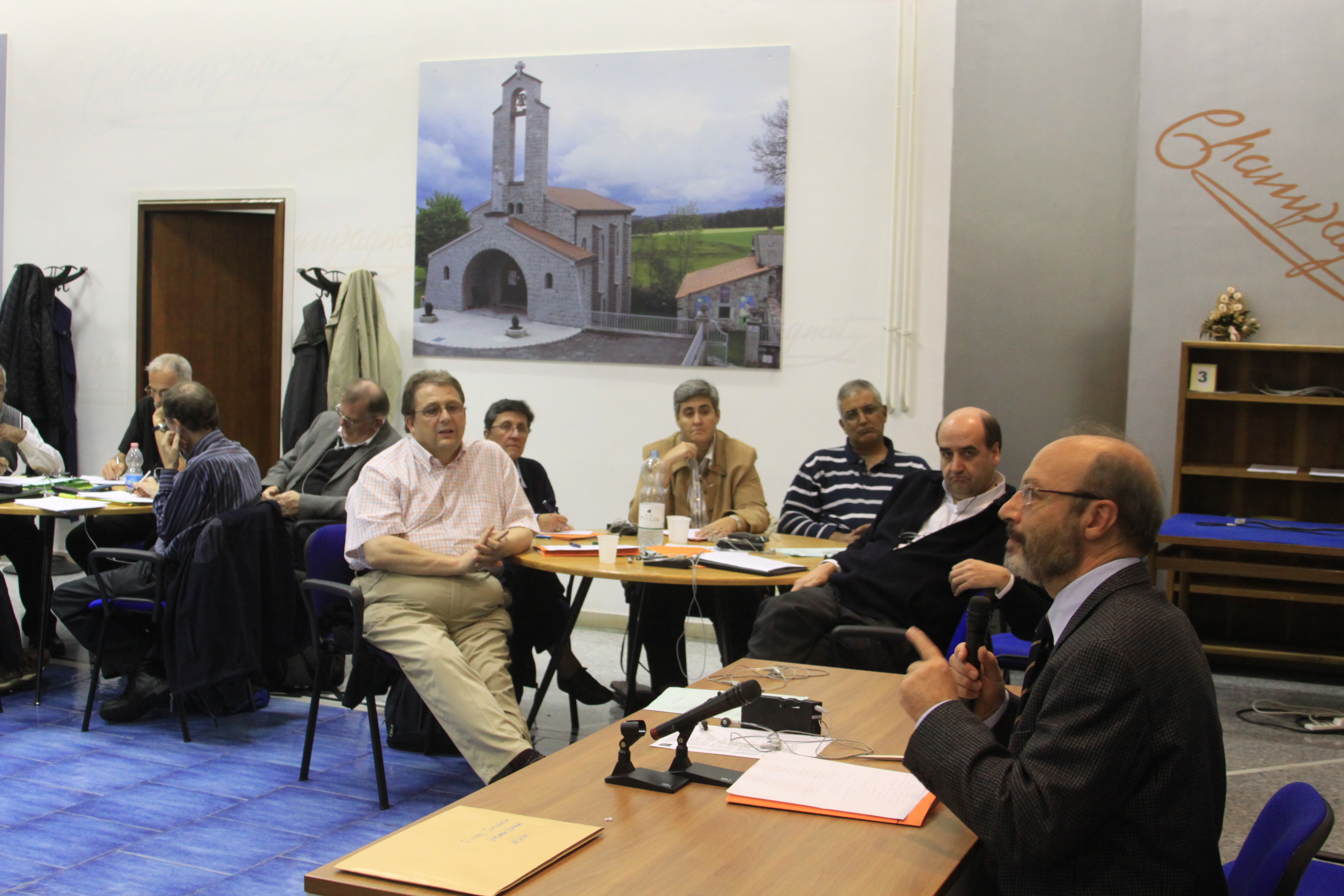
Formation of Religious and Lay Educators in the Service of Education
The Unions of Male and Female Superiors General, in their concern for the Educational Ministry entrusted by the Church to religious institutions, have for years been running a Commission of Education, whose main function is to invigorate the commitment of its institutions with the educational task that they carry forward everywhere. This Commission convoked a “seminar of reflection and study” on the theme “The formation of religious and lay educators, in the service of education in a changing world” which was held in Rome November 11, 2011. The objective of the meeting was the search for convergent ideas that would allow "the weaving of a network of collaboration" among all the institutions covered by the Unions of Male and Female Superiors General.
The meeting was held at the General House of the Marist Brothers, with the participation of Brothers Emili Turú, Superior General, João Carlos do Prado, President of the Secretariat for Mission, and Juan Miguel Anaya, as a member of the Commission of Education of the Unions of Male and Female Superiors General.
In a tight schedule, meeting at round tables of five or six people each, they shared in language groups the contributions made after a study of a document sent in advance to the Superiors General.
The reflection centered on looking at the reality of the changing world and how to serve it, valuing the person, overcoming aggression and individualism, using the great possibilities of communication to be able to promote a "shared mission". For that to happen it will be necessary to confront "the demands and challenges" of the world in which we live.
With relation to the formation projects it was affirmed that they should be presented in a double direction: in part, "from what we are and what we want"; in part, "from the realities to which we should respond". Some of the characteristics of the education that should be encouraged among educators are: adapted to a changing and constructive society; open to the influence of other cultures; supportive,in dialogue, respectful of others and of the environment, creating peace; based on values and open to transcendence, and therefore educating in the faith.
The formation options that should be reflected on and encouraged by the institutions in relation to their own educators, both religious and lay, should include, at the least, the most essential: the institutional formative framework, the styles and common priorities and the contextualized strategies.By “institutional formative framework” is understood those principles that all the institutions should promote in a systematic, clear, and prioritized way: shared mission, charismatic identity, the charismatic community of reference and the ministerial character of education.
Taking into account style and common priorities, that is to say, the aspects – pedagogical, pastoral, educational, organizational, etc. – that we desire to encourage in our institutions, it would be necessary to promote formation in working as a team, formation in personal and group accompaniment, an adequate professional formation, a system of progressive and systematic formation and formation for work with families.
The meeting concluded with some proposals to the leaders of the two Unions represented at the Seminar: 1. Promoting a joint publication of both Unions in relation to the principal challenges in the formation of our educators. 2. Carrying out a study, at the level of General Administrations, of the "best practices" in relation to the formation of educators in our institutions. 3. Make known to the whole body of the Male and Female Superiors General the conclusions of this "seminar of reflection and study" on the formation of educators.
